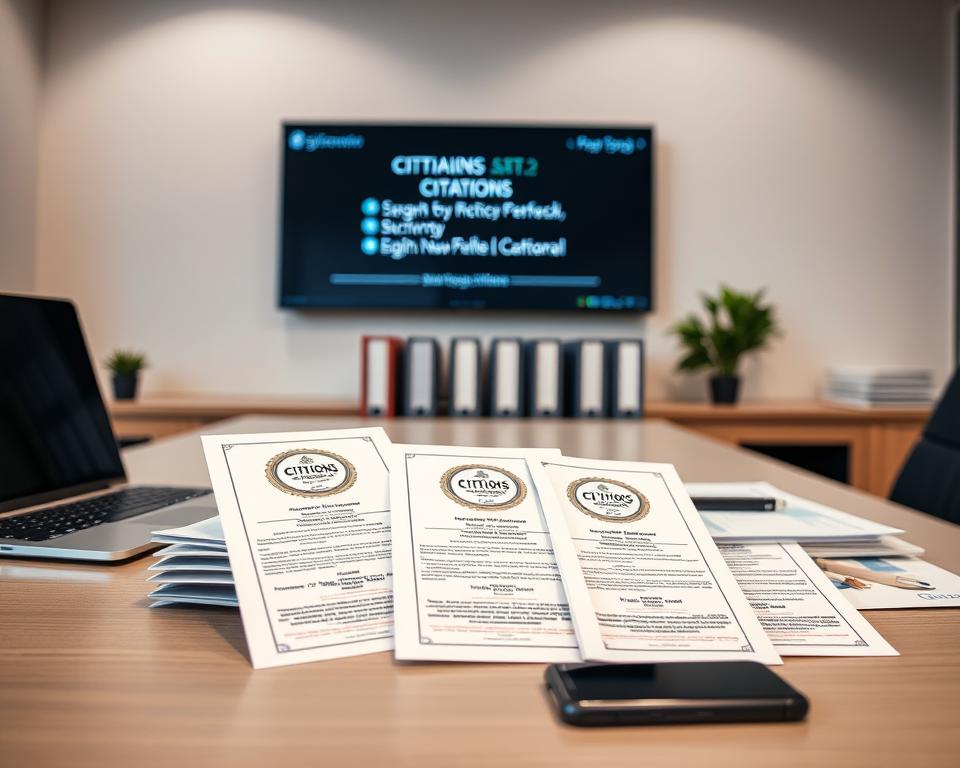Online Retail SEO for Beginners: Boost Your Revenue!
Did you know that 70% of online shoppers never scroll past the first page of query results? This fact underscores the critical role of effective ecommerce SEO for beginners. In the fierce online retail landscape, learning SEO is crucial to enhancing visibility and sales.
This guide is designed for online retail novices, offering vital Salt Lake City search engine optimization strategies to improve your online store’s presence. By refining your site, you not only boost its search engine ranking but also attract more traffic and increase conversion rates. Let’s delve into the core of online retail SEO together, laying the groundwork for your digital achievement.
Comprehending Online Retail SEO
Online retail SEO entails a range of strategies aimed at enhancing an online store’s presence on search engines. This important method attracts prospective clients and boosts sales opportunities. It’s a cornerstone for any digital company aiming to succeed in a competitive market. Understanding the basics of SEO for ecommerce shows how tailoring your website for SEO can greatly increase organic visitors.
Definition and Importance of Online Retail SEO
Ecommerce SEO is about optimizing an digital retail site for Google and Bing. By focusing on pertinent search terms, improving website architecture, and enhancing page, companies can increase their likelihood of appearing better in query outcomes. This is vital, as higher exposure leads to more customer interaction. Potential clients often perceive natural results as more trustworthy than paid ads, making SEO for online retail sites essential.
Benefits of Implementing SEO for Online Retail Sites
SEO techniques offer numerous benefits for online sellers:
- Increased Visitors: A properly optimized website draws more users.
- Improved UX: Effective SEO practices enhance website functionality and browsing, resulting in greater customer satisfaction.
- Higher Conversion Rates: Focused search terms help target the right demographic, resulting in more purchases.
- Credibility: Ranking high in query outcomes enhances credibility and trust among consumers.
- Long-Term Results: Unlike sponsored ads, organic positions can deliver sustained visitors over time.
Comprehending and using online retail SEO is crucial for any company aiming to connect with clients efficiently and expand in the online market.
Key Elements of Ecommerce SEO
Comprehending the key components of ecommerce SEO is crucial for achievement. Focus on key areas like search term analysis, on-page methods, backend factors, and material development. These elements can greatly boost online presence and drive sales. Let’s delve into the main aspects to consider.
Search Term Analysis: Finding the Appropriate Words
Keyword analysis is the foundation of online retail website enhancement. It entails identifying the terms prospective clients use when looking for items. By using tools like Google Keyword Planner or SEMrush, companies can discover valuable keywords. This process is essential for implementing easy-to-use SEO methods for online retail.
On-Page SEO Methods
On-site SEO optimizes different elements on your website, such as product details, titles, and metadata. Each page should include focused search terms while making sure of understandability and engagement. Improving headers and enhancing text clarity are also crucial for a effective on-page strategy.
Technical SEO Considerations
Technical SEO focuses on the backend of a site. Important aspects encompass website loading time, mobile-friendliness, and correct site structure. Fast page loads improve UX and immediately affect conversion rates. Regularly inspecting for dead links also guarantees a more efficient site.
Developing High-Quality Material for Your Shopify Store
Superior material draws users to your Shopify store and maintains them engaged. Interesting blog posts, comprehensive item details, and informative guides are effective. Consistently refreshing material not only boosts SEO results but also solidifies your company as an ecommerce expert.
Ecommerce SEO for Beginners: Key Strategies
For those new to ecommerce SEO, establishing an efficient site structure is key. A well-organized website enhances UX and boosts SEO activities. It assists Google and Bing and users locate your products quickly.
Organizing a User-Friendly Site Architecture
To ensure your website is easy to browse, consider these tips:
- Create clear menu bars that categorize items logically.
- Utilize informative titles for categories and subgroups to aid SEO optimization.
- Ensure simple entry to important sections like contact details, refunds, and FAQs.
These tips assist search engines and customers find and catalog products more efficiently. This improves the buying process for all users.
Enhancing Item Pages for Greater Exposure
Enhancing item listings is essential for ensuring your items are more noticeable. Concentrate on:
- Including pertinent keywords in item headings and descriptions.
- Utilizing high-quality photos with alt text that describes the products.
- Adding customer reviews to build trust and engagement.
This method ensures that as you start online retail SEO, each product listing draws prospective buyers and increases revenue.
Enhancing Your Ecommerce Site Optimization
Improving your online retail website enhancement is essential for better visibility and performance in Google and Bing. Concentrate on key aspects like site speed, backlink quality, and user-generated content. These components can greatly enhance your ecommerce website.
Improving Site Speed and Efficiency
Site loading time is crucial for UX and search engine rankings. A quick-loading website results in reduced exit rates and maintains prospective clients engaged. To boost efficiency, think about these tips:
- Compress images to reduce loading time.
- Minimize HTTP calls by simplifying page layout.
- Use browser caching to speed up the loading process.
Creating Reputable Links
Quality links from reputable sources indicate to Google and Bing that your ecommerce website is trustworthy and relevant. Build connections with bloggers and industry leaders to improve your backlink portfolio. Effective methods encompass:
- Guest blogging on authoritative sites.
- Engaging in industry forums and talks.
- Developing shareable material such as visual data and research studies.
Promoting Customer-Created Content
User-generated material, like reviews and endorsements, enhances your online retail site’s credibility. Motivate satisfied customers to post their reviews to provide social proof to prospective buyers. Consider these methods:
- Motivate reviews with discounts or rewards.
- Showcase customer photos on item pages.
- Interact with customers on social media to encourage posting.
Getting Started with Ecommerce SEO
Embarking on an ecommerce path necessitates understanding online retail SEO fundamentals. Start with thorough keyword research. Utilize tools like Google Keyword Planner and Semrush to pinpoint words that draw in your intended audience. This phase establishes the foundation for a effective online retail SEO strategy.
Then, focus on optimizing your site’s structure. A properly arranged site enhances user experience, facilitating simpler browsing and product discovery. Implement a clear hierarchy in your menus and make certain product groups are easy to locate.
Material development is crucial for enhancing site visibility. Frequently post articles, product guides, and educational pieces. This method not only increases visitors but also interests users, motivating deeper examination of your products.
Lastly, keeping a consistent SEO efficiency assessment is crucial. Use data analysis to evaluate your methods’ effectiveness. This ongoing evaluation helps pinpoint what works and where adjustments are needed, keeping your ecommerce website ahead online.
Monitoring and Assessing SEO Success
Successful online retail SEO requires constant analysis and adjustment. It’s vital for businesses to monitor their SEO efficiency regularly. This allows them to obtain important insights into their strategies. By leveraging data analysis, businesses can monitor different metrics. This makes it simpler evaluating the success of their SEO activities.
Using Data Analysis
Google Analytics is a essential tool for tracking online retail SEO performance. It offers important data on site traffic, conversion rates, and actions. By keeping an eye on these indicators, businesses can identify successful strategies and areas for enhancement.
Adapting Methods Based on Results
Assessing SEO success extends past just analyzing information; it also requires making changes based on those results. For example, if a search term isn’t working well, changing it with a more relevant word could assist. Enhancing loading times and enhancing UX are also methods that can significantly enhance performance. Regularly changing methods ensures continuous effectiveness in ecommerce SEO.
Summary: Embracing Ecommerce SEO
For beginners, adopting ecommerce SEO is vital for expanding their online footprint. Learning SEO basics enables businesses to implement essential methods that boost their search engine presence. This knowledge helps attract more natural traffic to their stores.
Learning ecommerce SEO for newcomers is more than just a starting point. It demands continuous optimization and education as the digital market evolves. By staying current with developments and data, businesses can enhance their site’s performance. This results in higher sales and increased sales.
Those who dedicate time to online retail SEO gain a competitive edge in their industries. Staying updated and responsive to developments ensures businesses stay relevant and ahead in the ever-changing digital commerce world.



